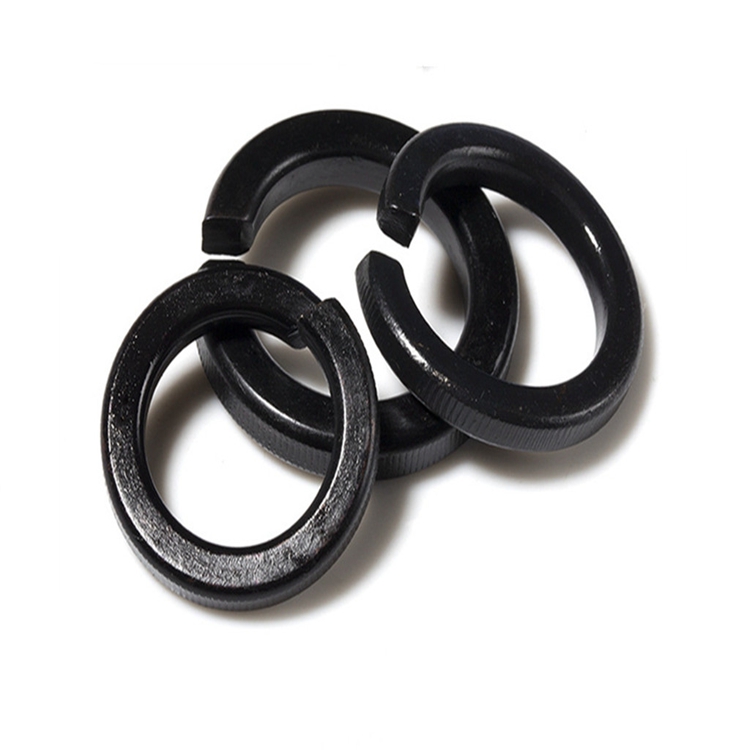half thread flange head bolts factories
Dec . 01, 2024 05:01 Back to list
half thread flange head bolts factories
Understanding Half Thread Flange Head Bolts Factories and Production Insights
Half thread flange head bolts are essential components in various industries, particularly in construction, manufacturing, and automotive applications. These bolts are distinguished by their unique design, which features a flange under the head that increases the surface area for load distribution and provides a tighter seal against the surface of the material being bolted. This design feature, combined with a partially threaded shaft, makes them particularly useful in scenarios where a strong clamping force is needed without the risk of material damage.
Design Characteristics of Half Thread Flange Head Bolts
The design of half thread flange head bolts is crucial to their effectiveness. The flange acts as a washer, distributing the load over a larger area, minimizing the risk of damage to the surface materials. Additionally, the partial threading allows for easier alignment during installation. This makes half thread flange head bolts ideal for applications where the materials being fastened are prone to deformation, such as soft metals or plastics.
Manufacturers often produce these bolts in various materials, including stainless steel, carbon steel, and other alloys, to cater to different environmental conditions and mechanical requirements. The choice of material significantly affects the bolt's resistance to corrosion, tensile strength, and overall durability.
The Role of Factories in Production
The production of half thread flange head bolts typically takes place in specialized factories that focus on fastener manufacturing. These factories employ advanced machinery and technology to ensure precise fabrication. The manufacturing process generally involves several key steps, including material selection, forging, threading, heat treatment, and finishing processes.
1. Material Selection and Forging Factories begin by selecting the appropriate raw materials based on the required mechanical properties and application environment. Once the materials are chosen, they undergo forging, a process that shapes the metal while enhancing its strength through work hardening.
2. Threading and Heat Treatment After forging, the bolts are threaded to the desired specifications. Heat treatment is often performed to improve the strength and hardness of the bolts, especially in high-stress applications.
half thread flange head bolts factories

3. Finishing Processes Finally, finishing processes such as plating or coating are applied to enhance corrosion resistance and aesthetic appeal. Common finishes include zinc plating, black oxide, and other protective coatings.
Quality Control Measures
Quality control is a vital aspect of the production process in bolt manufacturing. Factories implement rigorous inspection protocols at multiple stages of production to ensure that the final products meet international standards. This includes dimensional checks, material property tests, and visual inspections for defects. By adhering to stringent quality control measures, manufacturers ensure the reliability and safety of their fasteners in practical applications.
Applications of Half Thread Flange Head Bolts
Half thread flange head bolts are used widely across various sectors. In construction, they are often employed to secure structural components, such as beams and columns, where high load-bearing capacity is required. In the automotive industry, these bolts are crucial in assembling various vehicle components, including engines and chassis, where precision and strength are essential.
Moreover, industries such as aerospace, marine, and machinery manufacturing also rely on half thread flange head bolts due to their versatility and robust performance. Their application in critical assemblies demands a high level of reliability, making the role of factories in producing these components all the more significant.
Conclusion
In conclusion, half thread flange head bolts are a vital fastener type, known for their unique design and wide range of applications. The factories that produce these bolts play an essential role in ensuring they meet the necessary standards for quality and performance. Through advanced manufacturing processes and rigorous quality control, these facilities contribute to the safety and reliability of structures and machinery worldwide. As industries continue to evolve, the demand for increasingly specialized fasteners, such as half thread flange head bolts, will likely grow, driving innovation and improvements in manufacturing practices.
Latest news
-
High-Quality Panel Stud Bolt Reliable Panel Stud Bolt Factory & Suppliers
NewsJul.08,2025
-
High-Precision Fine Thread Locknuts Manufacturer & Supplier Custom Solutions
NewsJul.08,2025
-
PH Imperial Stud Bolt – High Strength Fasteners from Leading Supplier & Factory
NewsJul.07,2025
-
High-Quality Allen Wrench Bolts Leading Factory, Company & Suppliers
NewsJul.07,2025
-
Wholesale Ball Stud Bolt - High Quality Supplier & Factory Price Reliable Wholesale Ball Stud Bolt Company
NewsJul.06,2025
-
High-Strength Alloy Bolts Manufacturer & Supplier Quality Alloy Fasteners Factory
NewsJul.06,2025
